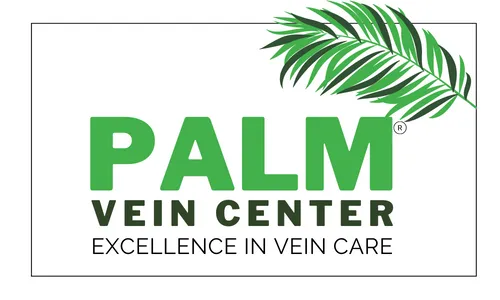
Blog

What Is Pelvic Congestion Syndrome?
Pelvic congestion syndrome is a condition that causes chronic pain in the lower abdomen or pelvis.
This condition is often associated with varicose veins in the pelvic region, which cause dull pain, pressure, and heaviness.
The team at Palm Vein Center explains what pelvic congestion syndrome is and why varicose veins are to blame!
Pelvic congestion syndrome is a painful condition that is often caused by damaged veins, or varicose veins, in the pelvic region. In healthy veins, blood flows in one direction. If the valves within veins become defective, blood will begin to flow backward and cause engorged varicosities. In the pelvis, veins are often located near nerves, which can cause pain if a varicose vein in this region is irritated in any way. There are a number of underlying conditions and lifestyle changes that can cause pelvic congestion syndrome.
Common Causes
The most common cause of this condition is pregnancy. The increase in fluid and weight gain near the abdomen can cause the veins to become damaged and engorged. Over the course of a woman’s pregnancy, veins may become distended, causing increased pressure and pain. Other causes related to pelvic congestion syndrome and pregnancy are an increase in estrogen and anatomical changes surrounding the pelvis. Although this condition is most common in women, it can develop in men with abdominal or intestinal issues.
Symptoms
Patients with pelvic congestion syndrome often experience the following symptoms:
-Pain that is dull and non-cyclical
-Pain that worsens before menstruation; abnormal periods
-Pain that worsens at the end of the day or from prolonged standing
-Pain or discomfort during sexual intercourse
-Swollen vulva/vagina Varicose veins are the vulva, buttocks, or legs
-Backache or tenderness around the pelvis and low back
What Can Be Done?
It’s important patients get evaluated for their condition because pelvic congestion syndrome can mimic a number of other conditions such as endometriosis, fibroids, or uterine prolapse. A physician may administer or recommend an ultrasound, venogram, CT scan, or MRI to diagnose the condition. Once a diagnosis has been made, you may be referred to a vein specialist, like the ones at Palm Vein Center.
Talk with a Vein Specialist
A vein specialist may recommend a combination of treatment options depending on the patient’s symptoms and disease state. Talk to the team at Palm Vein Center today to discuss treatment options for your pelvic congestion syndrome.
The advice and information contained in this article are for educational purposes only and are not intended to replace or counter a physician’s advice or judgment. Please consult your physician before taking any advice learned here or in any other educational medical material.
For more information on vein diseases and the treatments provided by the specialists at Palm Vein Center or to make an appointment, call 623-201-4777. We look forward to meeting you!
Palm Vein Center
SURPRISE
16944 W Bell Rd, Suite #603
Surprise, AZ 85374
PHOENIX
6170 51st Ave Suite 102
Laveen Village, AZ 85339
Hours of Operation:
Monday - Thursday 8:00am to 5:00pm
Friday, Saturday & Sunday CLOSED
Asclera
Ambulatory Phlebectomy
Compression Stockings by Medi
Endovenous Laser Treatment
Endovenous Radio- Frequency
Light Guided Sclerotherapy
Accreditations


SURPRISE
16944 W Bell Rd, Suite #603
Surprise, AZ 85374
PHOENIX
Hours of Operation:
Monday - Thursday 8:00am to 5:00pm
Friday, Saturday & Sunday CLOSED
Asclera
Ambulatory Phlebectomy
Compression Stockings by Medi
Endovenous Laser Treatment
Endovenous Radio- Frequency
Light Guided Sclerotherapy





